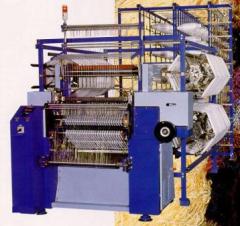The increase in electricity tariff will push the prices of Indonesian garments by up to 50 percent, making the industry less competitive in both domestic and export markets, Indonesian Synthetic Fiber Producers Association (Asosiasi Produsen Synthetic Fiber Indonesia or APSyFI) has said, reports ANTARA News.

The Government of Indonesia has announced plans to raise the electricity tariff, ranging between 38.9 and 64.7 percent, for large-scale industries from May 1, 2014, which is to be implemented in stages over a period of two to four months.
APSyFI said the rise in power tariff would impede in improving the competitiveness of polyester industry, which would in turn affect the garment sector, as the price of final product would increase by up to 50 percent.
In a press statement, APSyFI secretary general Redma Gita Wirawasta said the polyester industry is the upstream industry which supplies raw materials to the textiles industry, so there would be a domino effect of the rise in power tariffs on the weaving, knitting and garment industries, and the price of final product would rise by about 50 percent.
If the Government raises electricity tariffs of I-3 and I-4 classes of industries by 38.9 percent and 64.7 percent, the cost of industrial production in the polyester industry would also jump automatically, which would be passed on to the consumers.
In addition to the rising prices of raw material, the spinning industry would also be affected by the increase in electricity tariff. This affect would also spillover to the garment manufacturing sector, causing the price of the finished product to go up by 50 percent, Redma said.
This condition would negatively impact the performance of the Indonesian textile and garment industry, both in the domestic and export markets, he added.
The loss of competitiveness would mean either shutdown or reduction in production, which would impact the livelihood of workers, Redma said.
In 2013, exports of Indonesian polyester sector dipped nine percent to US$ 464 million from $507 million in the previous year. On the other hand, polyester imports grew eight percent to $416 million from $386 million worth of imports in 2012. Even the polyester industry’s share in the domestic market fell from 83 percent to 79 percent, according to the data from the Central Statistics Agency (BPS).





